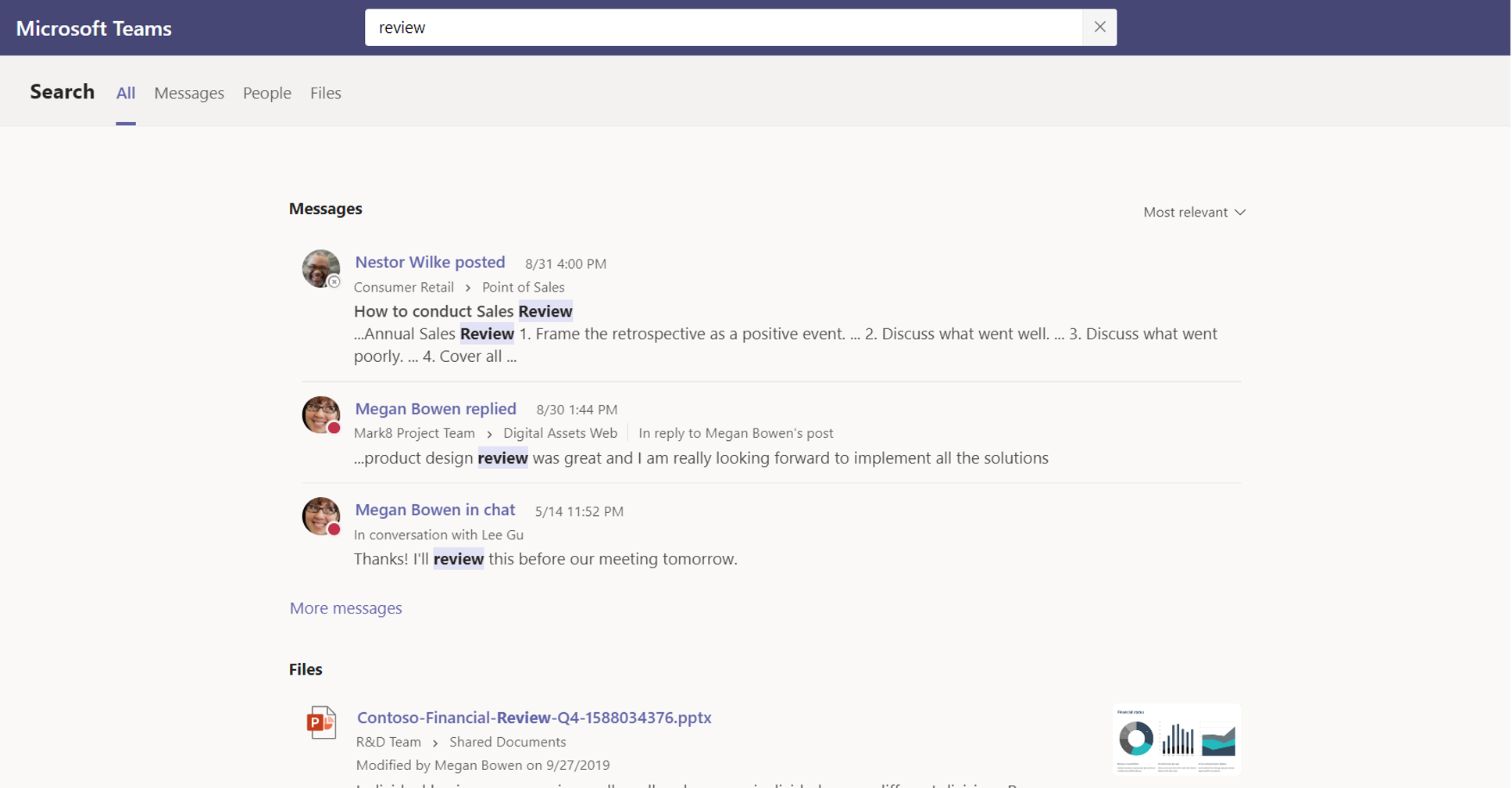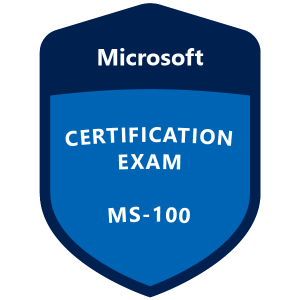
[ad_1]
Find the information you need exactly when you need it with the new Microsoft Teams search results page. We’ve re-envisioned the Teams search function to make it easier, faster, and also more consistent with the search experience you’re used to with other Microsoft products.
The new Teams search results experience features a re-designed user interface with four tabs aligned to the types of information users search most frequently: All, Messages, People, and Files. Using artificial intelligence, your search surfaces the most relevant results in an easy-to-read, full-page format. Plus, we’ve added a new question-and-answer search option that enables you to type a question in the search bar and get high-confidence answers.
Let’s take a look at each of the four redesigned search pages:
Find the information you need: the new “all” page
When you’re not sure what type of information you need, “all” is the place to start. When you search all, you get back the most relevant results from Teams as a whole, including results from messages, people, and files. In the example below, typing “review” in the search bar surfaced results from both messages and files.

What if the information you’re trying to find is the answer to a specific question, like “What does the acronym TEE stand for?” As shown in the next example, simply type your question in the search bar. A new section appears at the top of the page featuring the most relevant results.

Focus your search on conversations: the new “messages” page
Messages are the most searched-for information in Teams, and the redesigned messages tab speeds and simplifies your search by returning results from messages only—with no extraneous results from people or files to sift through. Type your key words in the search bar on the messages page as shown below, and then quickly scan the results to find the message you’re looking for. You can further filter the results by choosing the message type, date, and other attributes.

For longer messages, the results show a snippet of the part of the conversation that matches the search. Click on a specific message result to expand and view it in full.

Find and connect with others: the new “people” page
Customers tell us that easily finding key information about their colleagues, like location, team, email, and phone, is particularly important in today’s distributed workforce. Using the people tab, you can quickly search using just a portion of a person’s name. Plus, you can click on the result to start a conversation with that person directly.

Limit your search to files: the new “files” page
As shown in the example below, when you search using the redesigned files tab, you see all your results in a single place, including the file information, a preview image of the file, and the snippet of information from the file that matches your search. Like on the messages page, the file search results can be expanded to show more of the matched snippet when available, along with a larger preview of the file, saving you multiple clicks.

Surface more relevant results faster: customized & discoverable filters
In addition to redesigning the search pages to bring you better results faster, we’ve also added an expanded set of filters for more targeted results from the very beginning of your search. As shown in the examples below, you can use these filters to scope results by type, location, person, date, and so on. You can exclude messages sent by apps & bots. Also search between specific dates, based on mentions, or modified by, etc. Plus, you can clear all filters with a single click if you decide to expand your search.


Pro tips for searching in Teams:
1. To start a search within a chat or channel, just press CTRL+F in Windows or CMD+F in Mac.
2. For richer search results in messages, you can use Keyword Query Language (KQL). Below are some of the modifiers that Teams supports. (Reminder: there’s no space between the colon and the search terms.)
o From:<Person’s name>
o In:<Channel or group chat name>
o Subject:<keyword from a channel message with a subject line>
o Sent:<Date>
Learn more:
To learn more about how to search and use filters, the following links to videos with instructions will be helpful.
Search and filter messages (microsoft.com)
Search and filter people and files (microsoft.com)
What’s next:
We are listening to your feedback, and we are committed to continuing to enhance the search experience. Stay tuned for new features designed to help you get the most from your busy workday.
Source link




